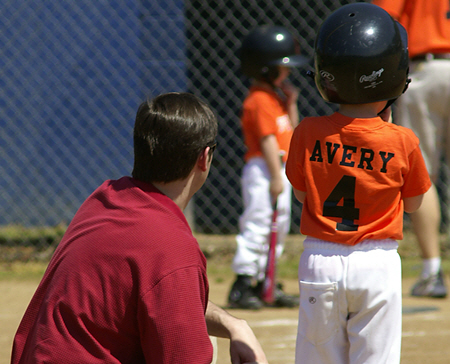 When you became a parent, you never imagined this…
When you became a parent, you never imagined this…
A judge has ordered you and your spouse to undergo a custody evaluation.
A custody evaluation becomes necessary when both parties are at a standstill in terms of agreeing to the possession and access to the child(ren).Sometimes one or both parents are petitioning the court to have full custody of the child(ren) with limited or no access to the child(ren) for the other parent. In different situations, the parents have a high conflict relationship pre- or post-divorce, which results in many truthful or false allegations.
For the judge to make a decision that is in the best interest of the child(ren), a mental health professional is retained to provide an evaluation of parents and children. Sometimes this involves contact with other significant persons such as grandparents living in the home or school teachers, physicians, etc.
In the state of Texas, a custody evaluation also involves a home-visit to both residences, unless the judge waives the requirement explicitly. The evaluation will include collecting information from both parents as well as multiple interviews. In addition to individual interviews with each family member, there are also observation periods when each co-parent is observed as they interact with the child, either at the office or in the home setting. Also, the evaluator reviews previous court documentation and legal activity regarding the divorce and custody case.
The idea is daunting… and scary.
And you might be feeling like your world is spinning out of control.
It is common for parents to tell me they were afraid that I would believe the other parent when the ex tells lies damaging their reputation. Many have expressed their worry over whether a past known or admitted mistake will automatically skew my opinion against them and in favor of the other parent.
Parents sigh with relief when I explain I am not looking for the best parent or “perfect” parent. Instead, I am providing a snapshot to the courts of your family as individuals and collectively in relationship with one another.
The custody evaluation process provides the judge with a window to view the family realistically, so they can provide a decision that supports the ideal goal of the child(ren) having healthy attachment and experiences with both parents.
Let’s talk about what they are and what they’re for…
… and take some of the uncertainty out of the equation.
A custody evaluation is a legal process in which a mental health expert with advanced training and experience evaluates a family and makes a formal recommendation to the court for custody, visitation, or parenting plan.
A custody evaluation can help in making recommendations for parenting time and custody. Often parents agree to a standard possession order, but exceptions occur. A custody evaluation can suggest but not require (ultimately the presiding judge will decide) a modified or alternative model in the best interest of the children. William* was a very involved father who spent many days and hours coaching his son’s baseball team. His parents divorced when he was very young, and he remembers crying and wanting his Mom at bedtime. His Dad got full custody because the court battle resulted in Mom being found unfit. William never agreed with that verdict. He knew his Mom loved him and had taken good care of him even if she had made other poor decisions.
William* was a very involved father who spent many days and hours coaching his son’s baseball team. His parents divorced when he was very young, and he remembers crying and wanting his Mom at bedtime. His Dad got full custody because the court battle resulted in Mom being found unfit. William never agreed with that verdict. He knew his Mom loved him and had taken good care of him even if she had made other poor decisions.
That early life experience provoked him to yield primary custody to his ex; however, he wanted to spend as much time as he could with his son. Now his ex was suing for full custody, and this frightened William because he was unwilling to “play the game” and counter-sue. He knew his son needed Mom, too, and didn’t want him to go through the agony he felt with his own parent’s arrangement.
Why couldn’t they agree? A custody evaluation was ordered when mediation attempts failed. The evaluation recommended Mom have primary custody, and Dad has expanded visitation. William was able to continue his close involvement with his son without feeling he was selfishly robbing time his son needed to be with his mother.
 Seth* and Simone* were twins, and their parents divorced when they were infants. Dad had primary custody of their son, Seth; Mom had primary custody of their daughter, Simone. The parents exchanged the children for standard periods of possession (1st, 3rd, 5th weekends, and a mid-week evening visit).
Seth* and Simone* were twins, and their parents divorced when they were infants. Dad had primary custody of their son, Seth; Mom had primary custody of their daughter, Simone. The parents exchanged the children for standard periods of possession (1st, 3rd, 5th weekends, and a mid-week evening visit).
Things worked out fine until the children were five, and they enrolled in the same school system where social activities increased significantly. Mom was upset she never got to have her “whole” family together because one or the other child was away. It bothered her more that her children complained that Dad wasn’t spending time with them because he worked long hours and mostly needed to leave them with paternal grandparents during the school week. She requested a custody evaluation, and the court granted it.
Parents were joint conservators with equal rights on the child’s education, medical needs, etc. However, Mom was granted primary custody of both children, and Dad was awarded expanded visitation, which allowed him to have the children from Thursday after school until Monday morning school drop off.
 Lynn* and Frank* both travel for work approximately 50 percent of their week. They agreed their three minor children should remain in the only home they had known. However, neither was willing to move out or leave the home to allow the other to live there. They both petitioned for full custody, and mediation efforts failed.
Lynn* and Frank* both travel for work approximately 50 percent of their week. They agreed their three minor children should remain in the only home they had known. However, neither was willing to move out or leave the home to allow the other to live there. They both petitioned for full custody, and mediation efforts failed.
The court-ordered custody evaluation recommended birdnesting (a term meaning to keep the family residence intact as a home where both parents rotate living with their children, while otherwise dwelling in separate residences). The arrangement meant Mom lived in the home for two weeks while Dad traveled. Then the following two weeks, Dad lived in the home while Mom traveled. The children were able to remain in their familiar surroundings and school system. This unique possession and access order considered the parent’s mutual goal of staying in the home with their children and accommodated it while working in the best interest of their children and placed the burden of mobility on the parents.
Custody Evaluations are also used to make recommendations for minimizing problems between parents…
… like minimizing conflict during child exchange, using a parenting coordinator, or determining treatment needs of individual family members.
For example, a neutral and public area is sometimes used for the exchange to prevent drama, escalation, and allow for witnesses if drama or escalation occurred.
Or, a parenting coordinator might be necessary for high-conflict parents, as an ongoing conflict for years has been known to damage the kids. The coordinator can work as a peacebuilder for the child and serve as a “tie-breaker” for future ongoing conflicts the parents continue having throughout the child’s growing up years.
In other situations, recommendations for additional assessment or therapeutic intervention might be warranted for things such as severe emotional distress in the parent(s) or child(ren) or ADHD difficulties, etc.
 A custody evaluation typically has many moving parts to it…
A custody evaluation typically has many moving parts to it…
So, naturally, it involves many people and many steps to completion.
You will be asked to complete multiple questionnaires about your background.
You will be interviewed about pertinent information – about both the issue that has been brought to the court and your background.
A thorough review of records (e.g., medical, educational, military, or professional) will be completed.
Additionally, psychological testing will be conducted using several different standardized and validated tests.
Usually, the tests are to evaluate the individual’s overall well-being in the areas of emotional and behavioral functioning as well as personality dynamics. Other tests may also be selected based on the referral question. For example, if one parent is accused of substance misuse or accused of child endangerment, other tests to assess risk may be a part of the evaluation process.
Interviews and testing are conducted with all relevant individuals involved in the case (e.g., each parent and child, stepparents, stepchildren, grandparents, etc.). It is common to interview and test children separately… and then with each of the parents.
At the end of the evaluation, a psychological report is generated and sent to the appropriate parties.
You may wonder about the fairness and unbiased role of the evaluator.
This is understandable. You feel as if your world is relying on the outcome of someone you don’t know.
Concerned parents have told me…
“I was worried my ex would lie and con you, too.”
“She can make anyone believe her doc, even you. I’m telling you – I even question my memories, and I was there!”
“He wins everybody over with his charm and acts completely different at home.”
Please know that I take my role as a forensic psychologist very seriously. I recognize the potential impact and consequences my findings and report will have on you and your family.
My utmost goal, strongly governed by my ethics, is to seek a balanced amount of data and information from both parties to help formulate my recommendations.
Additionally, I am also governed by the American Psychological Association’s codes and standards of professional ethics. This requires me to avoid bias by focusing on the data and evidence presented to me and applying structured and transparent, professional clinical judgment based on the data gathered.
Lastly, it might help to think of it this way: my role as a forensic psychologist is NOT to advocate for a particular outcome of a psychological-legal question. Instead, it’s to focus on providing accurate information to inform and answer the psychological-legal question being asked by the court.
 Are you convinced you ex has psychological problems that only you can see?
Are you convinced you ex has psychological problems that only you can see?
Are you at a dead-end street in terms of negotiating and mediating a mutually satisfying custody arrangement?
Do you fear the children are neglected or harmed when forced to be with their other parent?
Remember, my goal as an evaluator is to be a peacebuilder and present an accurate picture of you so that the child(ren)’s best interest is served. Do you want that, too? If you answered ‘yes’ to any of these questions, I encourage you to consult with your attorney to learn more about how a custody evaluation can resolve the endless battles.
Please recognize I cannot advise you or offer legal advice; however, I am available to provide a free 15-minute consultation if you have other questions about my services as a custody evaluator. Call me today: (281) 900-8040.
*Names and demographics changed to preserve client confidentiality.
To learn more about additional Forensic Services (court-related therapy or evaluations), please visit my What is Forensic Psychology? page.

